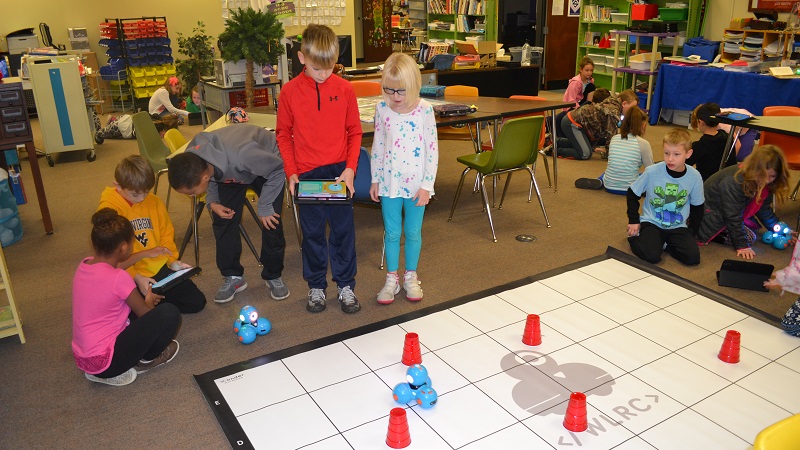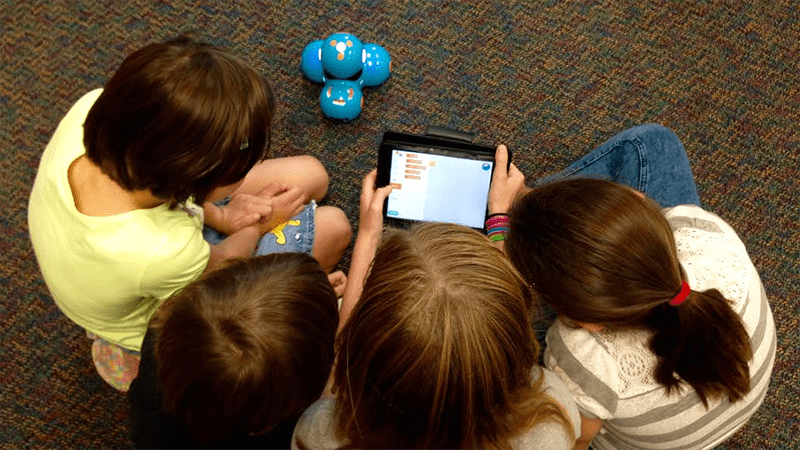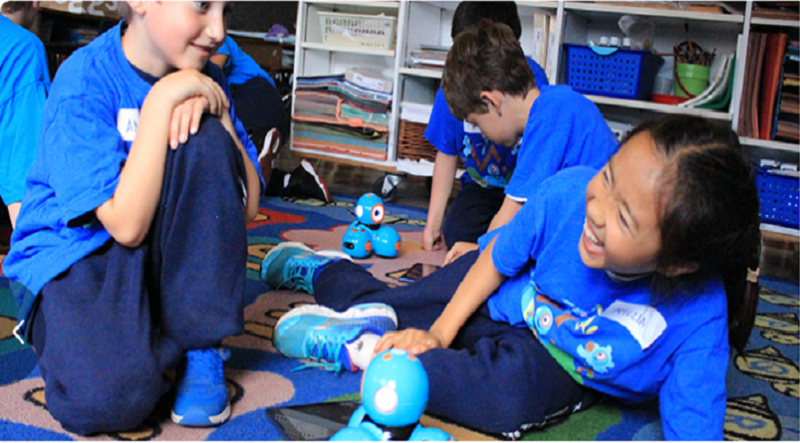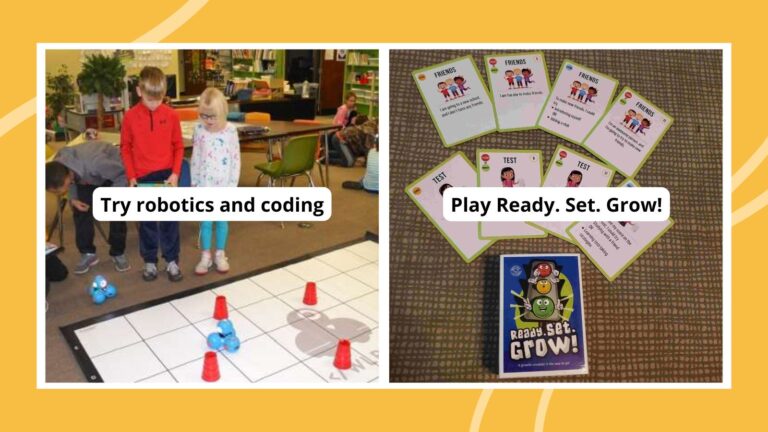We all want our students to work hard, stay in learning mode, and not give up. All of these skills come together under the term “growth mindset”—and teaching coding might be the best way to truly foster growth mindset in the classroom. Here’s why:
1. Students learn there are many ways to succeed.

Wonder Workshop for We Are Teachers
When students learn to code, “What if we try this?” becomes their go-to phrase. Let’s say groups of students code robots to move through a maze or path. Once they are successful, they meet back with the other groups to share their results. Turns out it’s possible to have different coding strategies with the same result! This understanding transfers back to academic goals and students learn to value their own process, even if it is different from their peers.
2. Praising the process helps students see you value more than just the product.
Learning to code can be challenging. Students have to learn new ways of communicating with each other and with a robot. As they come up with new ideas or changes to code, students have to explain their thoughts to their peers. They may verbally work through coding to check for errors before even testing it. This is a critical component to correctly code.
When you give your students the time they need to discover a process that works, the reward is in the process. The product is merely that a robot got from one place to another, but the process of developing code together with a team to tell a robot what to do successfully is the exciting part. This thinking about the value of process is a game-changer for learners and can translate to all areas of learning.
3. Understanding that revision is necessary changes the process for students.
If you always think you must be right the first time you do something, it’s tough to want to take a risk. A growth mindset values the ability to start something with the understanding that it must be revised many times as well. Taking risks is essential in learning, but it’s also one of the hardest things for kids to understand. When coding, kids begin to see those failed first steps as challenges they get to attack like a puzzle or a game.
The ability to “try” is a skill that builds over time. Student coders become master revisionists, which allows them to deepen creativity to find success. Imagine being able to encourage your kids to revise their writing just as they revised their code!
4. Coding teaches students how to give and take critique.
Teaching students the value of critique is part of a growth mindset. Coding and robotics offer ample opportunities for your teacher critique, but an even greater possibility emerges—peer feedback. Set some ground rules, and teach students to ask specific questions with kindness. Students soon start to take more ownership of their work, understanding they can learn from other students’ work and feel the push to improve.
5. Collaboration is a key component of coding—and growth mindset!

When kids design a coding project, they learn quickly that teamwork is necessary. The beauty of teaching coding and robotics lessons is that you get to see a team naturally form amongst your students. They find challenges and solutions and persevere together. What also emerges from this kind of collaborative effort is that kids are inspired when others succeed. It’s tough to find any one thing that teaches so many life skills, but coding does just that.


